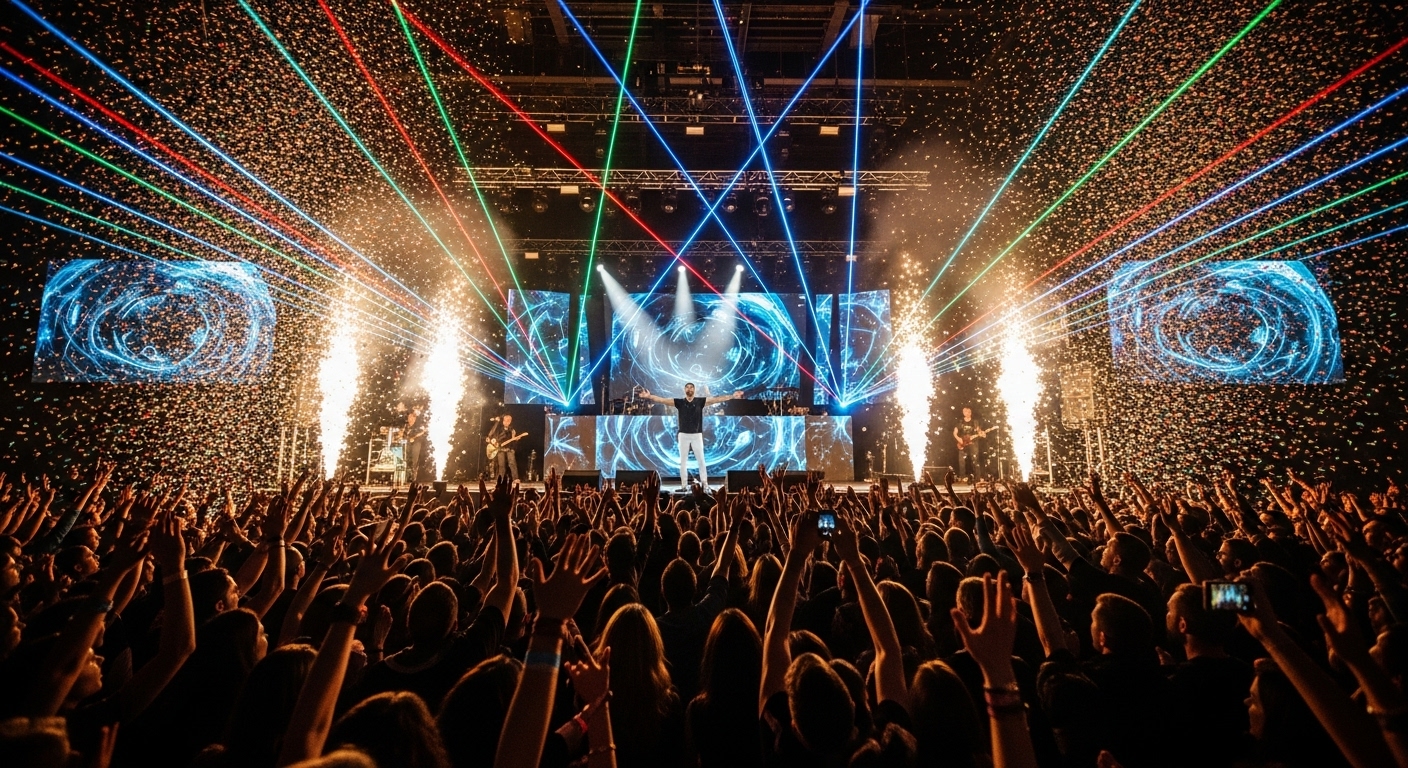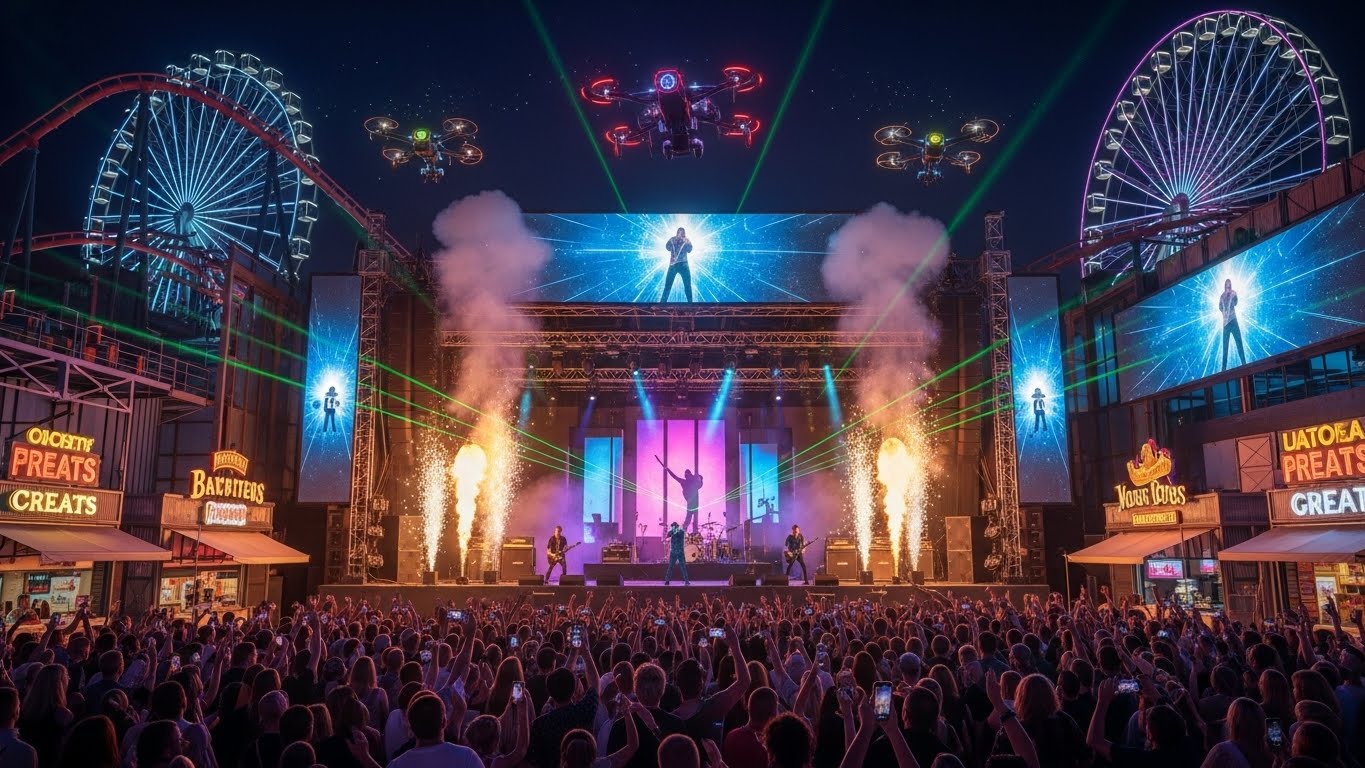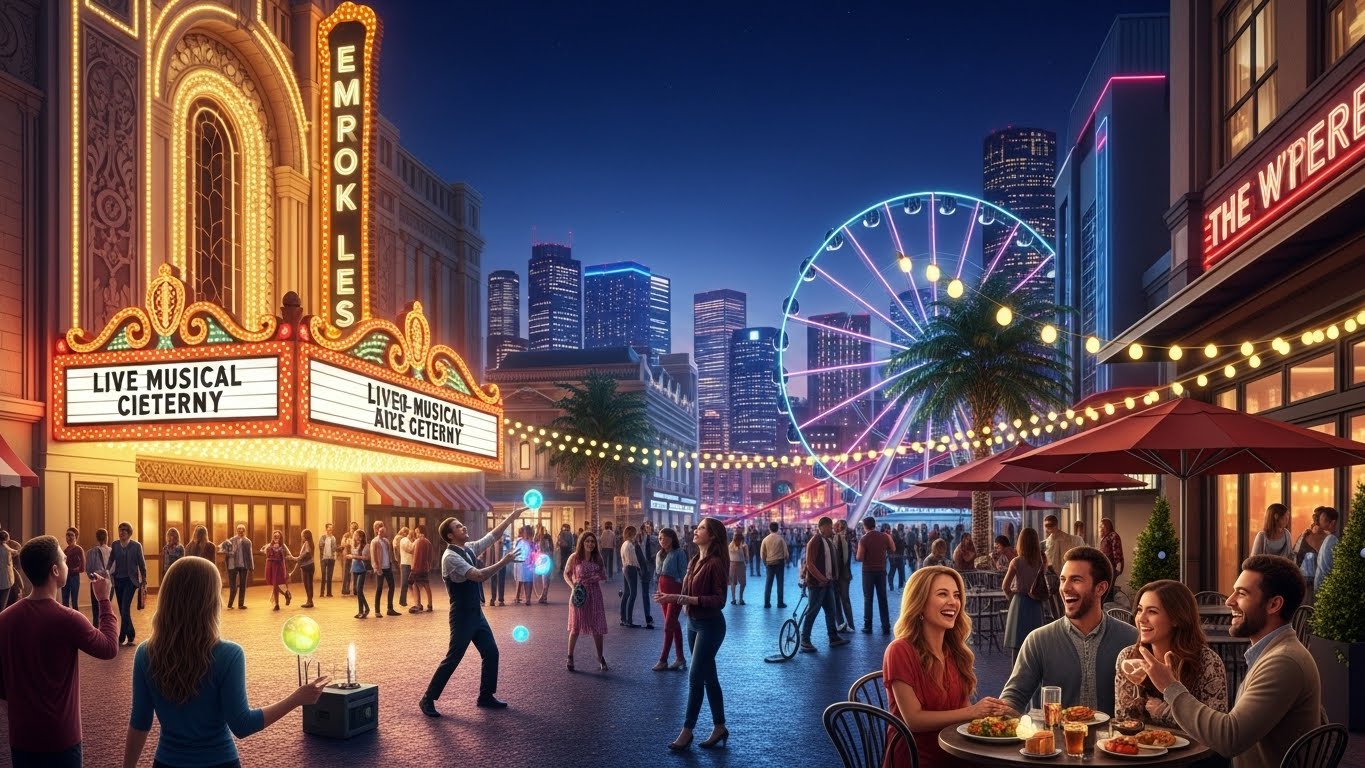Entertainment has always been an essential part of human life. From the earliest days of civilization, people have sought ways to amuse, express, and escape from the ordinary. Whether it was through storytelling around a campfire, theatrical performances in ancient Greece, or the latest blockbusters streaming on digital platforms, entertainment continues to evolve with time. It shapes our moods, unites cultures, and reflects the values of society. In this vast and colorful world, entertainment is not merely about passing time—it is an art, a mirror, and a powerful force that touches the soul.
The Evolution of Entertainment
The roots of entertainment trace back to the earliest human gatherings. Long before the invention of writing, people entertained one another with oral tales, songs, and rhythmic dances. These forms were not just amusement—they were tools for communication, education, and bonding. As time progressed, new mediums emerged.
In ancient civilizations, entertainment was woven into daily life. The Greeks performed tragedies and comedies that explored human emotion and divine influence. The Romans built grand amphitheaters for gladiatorial contests and plays. In medieval Europe, traveling minstrels and jesters brought laughter and stories to villages. Every era added its unique flavor, shaping entertainment into what we know today.
The invention of printing revolutionized how stories were shared. Books opened worlds of imagination and knowledge, reaching audiences far beyond oral traditions. Later, with the rise of technology, entertainment took on visual and auditory forms—film, radio, television, and eventually, the internet. Each innovation changed the way people experienced joy, art, and culture.
The Power of Storytelling
At the heart of all entertainment lies storytelling. Whether it is a film, song, novel, or even a video game, every form of entertainment tells a story. Stories have the power to transport us to distant lands, introduce us to unforgettable characters, and allow us to feel emotions we may never experience in real life.
A good story resonates deeply because it reflects our own humanity. It may portray love, loss, courage, fear, or hope—all emotions we understand. The best storytellers connect with audiences through truth and imagination, making them laugh, cry, or think. From fairy tales to modern cinema, storytelling remains the most powerful form of entertainment because it gives meaning to our experiences.
The Golden Age of Cinema
Cinema has long been considered one of the most influential forms of entertainment. It combines multiple art forms—acting, writing, music, and visual design—into a single experience. From silent films of the early twentieth century to today’s digital spectacles, movies have captivated audiences worldwide.
The early days of film were marked by creativity and experimentation. Directors like Charlie Chaplin and Buster Keaton made people laugh without saying a word. As sound and color were introduced, storytelling became more immersive. The mid-twentieth century saw the rise of Hollywood’s golden age, where stars like Marilyn Monroe, Humphrey Bogart, and Audrey Hepburn became cultural icons.
Today, cinema continues to evolve. Digital effects, streaming platforms, and global collaborations have transformed the industry. Films are no longer confined to theaters; they live in our homes, our phones, and our memories. Yet despite all the technological advances, the essence of cinema remains the same—to tell a story that moves the heart.
Music: The Universal Language
If storytelling is the soul of entertainment, music is its heartbeat. Across every culture and generation, music connects people in ways words cannot. A melody can express what language fails to capture—joy, sorrow, love, rebellion, and peace.
Music’s history is as old as humanity itself. Ancient civilizations used instruments made of wood, bone, and stone to celebrate life and worship the divine. Over centuries, music evolved into countless genres—classical, jazz, rock, pop, hip-hop, and more. Each style carries its own rhythm and story, reflecting the culture and emotions of its time.
In the modern world, music has become a global force. Artists can reach millions of listeners with a single song, breaking barriers of language and geography. Whether performed live or streamed online, music remains one of the most powerful and emotional forms of entertainment. It heals, inspires, and unites.
The World of Television
Television changed the landscape of entertainment forever. It brought the world into our living rooms, connecting families and shaping public opinion. In its early days, television was a source of shared experience. Families gathered around the screen to watch news, comedies, dramas, and live events.
As technology advanced, television diversified. Cable networks introduced specialized content for every interest—sports, cooking, travel, and more. Later, streaming services transformed viewing habits entirely. People no longer had to wait for scheduled broadcasts; they could watch what they wanted, when they wanted.
Television also became a platform for cultural expression. Iconic shows shaped generations and reflected social change. From the laughter of classic sitcoms to the intensity of modern dramas, television remains a vital form of entertainment that evolves with its audience.
The Digital Revolution and Online Entertainment
The rise of the internet marked a new era in entertainment. Suddenly, anyone could create, share, and enjoy content without traditional barriers. Social media platforms turned ordinary individuals into influencers, comedians, and artists. Online streaming made movies, series, and music accessible across the globe.
Gaming also became a major pillar of digital entertainment. What began as simple pixelated games evolved into complex virtual worlds where millions interact and compete. Esports tournaments fill arenas and attract global audiences, proving that gaming is not just play—it is performance, strategy, and art.
Moreover, digital platforms have democratized creativity. Independent artists, filmmakers, and musicians can now reach audiences without relying on big studios. This freedom has led to a surge of innovation and diversity in entertainment, allowing fresh voices to be heard.
The Role of Humor in Entertainment
Laughter has always been one of the purest forms of entertainment. It brings joy, reduces stress, and connects people. Comedy, whether in stand-up, film, or television, holds a unique place in the entertainment world.
Humor reflects the absurdities of life. Comedians turn everyday situations into moments of hilarity, helping audiences see the lighter side of challenges. From classic slapstick humor to clever satire, comedy has the power to entertain and provoke thought at the same time.
In an age of uncertainty and pressure, humor remains essential. It reminds us not to take everything too seriously and that even in difficult times, a good laugh can heal the heart.
Theatre and Performing Arts
Before movies and television, there was the stage. Theatre has been entertaining audiences for centuries, combining performance, dialogue, and emotion in real time. Watching a live play is a unique experience—the audience shares a direct connection with the performers, creating an atmosphere of authenticity and energy.
Theatre has adapted over the years, embracing modern technology and storytelling techniques. Musicals, operas, and stage dramas continue to captivate audiences around the world. Even as digital entertainment grows, live performance holds a timeless charm that cannot be replicated by screens.
Performing arts remind us of the beauty of human expression. Every gesture, voice, and emotion on stage is a celebration of creativity.
Literature: The Silent Companion of Imagination
Books have always been one of the purest forms of entertainment. Long before visual media, literature offered an escape into other worlds. A good book invites readers to imagine, to feel, and to reflect. It does not rely on visuals or sound; it relies on the power of words.
From ancient myths to modern novels, literature has entertained and enlightened for centuries. It is through books that countless stories have survived the test of time. Writers create universes where readers lose themselves, experiencing joy, sorrow, and adventure through imagination alone.
In the modern age, reading may compete with faster forms of entertainment, yet its magic endures. The quiet pleasure of reading remains unmatched—a personal, intimate form of escape.
Dance and Expression Through Movement
Dance is a universal form of entertainment that transcends words. Every culture has its own style of dance, expressing emotion, tradition, and rhythm. From the elegance of ballet to the vibrancy of hip-hop, dance connects body and soul through movement.
In ancient times, dance was part of rituals and celebrations. Today, it has become both art and sport. Dance competitions, stage performances, and online videos showcase the creativity and talent of performers worldwide. Watching dance can be mesmerizing—it combines music, movement, and emotion in perfect harmony.
Dance entertains not only through visual beauty but also through passion. Each step tells a story, and every movement carries energy that reaches the audience’s heart.
The Social Aspect of Entertainment
Entertainment is not only about individual enjoyment—it is also about connection. Shared experiences bring people closer. Watching a movie with friends, attending a concert, or playing a game online creates bonds that last.
Throughout history, entertainment has been a means of social unity. Festivals, carnivals, and performances brought communities together. Even in today’s digital world, where much entertainment is consumed alone, the spirit of connection persists. Fans form online communities, discuss favorite shows, and celebrate shared passions.
Entertainment is, at its core, a celebration of humanity. It reminds us that no matter how different we are, we all laugh, cry, and dream in similar ways.
The Business of Entertainment
Behind every performance or production lies an entire industry. Entertainment is not just art—it is also business. Film studios, record labels, streaming platforms, and event organizers all contribute to a massive global economy.
The business of entertainment employs millions, from actors and musicians to editors, designers, and technicians. As audiences evolve, so does the market. Companies invest heavily in understanding what people want—emotion, innovation, and connection.
Despite the commercial side, the true success of entertainment lies not in profit but in impact. A film that moves people, a song that inspires change, or a play that stirs emotion—that is the true measure of success in the entertainment world.
The Future of Entertainment
As technology advances, the future of entertainment looks boundless. Virtual reality, artificial intelligence, and immersive storytelling are already transforming how we experience art and media.
Imagine watching a movie where you can step into the story or a concert where you feel the rhythm all around you. Entertainment is becoming more interactive, personal, and sensory. Yet even in this futuristic vision, the essence remains the same—human connection and emotion.
No matter how sophisticated technology becomes, the desire to be entertained will always be driven by imagination. The future of entertainment will continue to blend creativity with innovation, offering endless possibilities.
Conclusion: The Endless Rhythm of Joy
Entertainment is more than distraction—it is expression, reflection, and connection. It defines eras, inspires change, and brings happiness to billions. From the flicker of an ancient fire to the glow of a modern screen, the essence of entertainment has remained constant: to make us feel alive.
It speaks to our emotions, feeds our imagination, and connects our spirits. Whether through a song, a story, a performance, or a simple laugh, entertainment continues to remind us of our shared humanity.
In a world that never stops moving, entertainment gives us moments to pause, dream, and feel. It is the heartbeat of culture, the voice of creativity, and the universal language of joy—a rhythm that will never fade.



